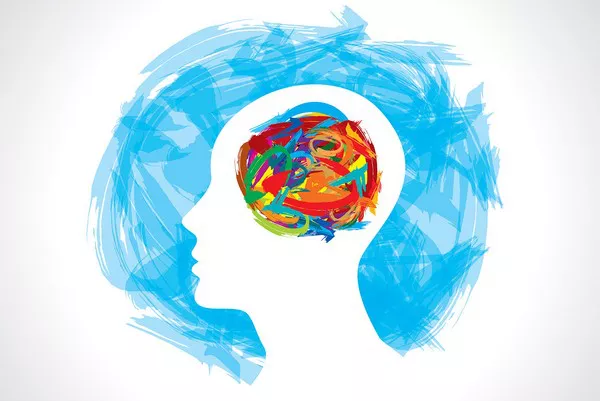Depression is a complex mental health disorder that affects millions of individuals worldwide. The exact cause of depression remains elusive, as it is influenced by a multitude of factors—biological, genetic, environmental, and psychological. In this article, we delve into the multifaceted nature of depression and explore the various factors that contribute to its development. By gaining a deeper understanding of these causes, we can enhance our awareness and improve approaches to prevention, diagnosis, and treatment.
Defining Depression
Depression is more than just occasional sadness or feeling “down.” It is a clinical condition characterized by persistent feelings of sadness, hopelessness, and loss of interest in previously enjoyable activities. Depressive episodes can significantly impact an individual’s daily functioning and quality of life. While several subtypes of depression exist, including major depressive disorder, dysthymia, and seasonal affective disorder, the causes discussed in this article are applicable across different types.
1. Biological Factors
Several biological factors contribute to the development of depression. Neurotransmitter imbalances, particularly involving serotonin, norepinephrine, and dopamine, play a vital role in regulating mood. Changes in brain structure and function, hormonal imbalances, and disruptions in the hypothalamic-pituitary-adrenal (HPA) axis have also been linked to depression. Genetic predisposition and family history are additional biological factors that increase susceptibility to depression.
2. Psychological Factors
Psychological factors interact with biological processes and can significantly influence the onset and progression of depression. Prolonged stress, trauma, grief, and other life events can trigger depressive episodes. Negative thinking patterns, such as rumination and distorted cognitive processes, contribute to the maintenance of depressive symptoms. Low self-esteem, perfectionism, and a history of childhood abuse or neglect are also psychological factors associated with depression.
3. Environmental Factors
Environmental factors can act as triggers or exacerbate existing vulnerability to depression. Adverse childhood experiences (ACEs), including early trauma, neglect, or exposure to violence, increase the risk of developing depression later in life. Social determinants of health, such as poverty, unemployment, social isolation, and lack of support networks, can also contribute to the development of depression. Additionally, chronic stressors like relationship difficulties, work-related stress, and financial problems can contribute to the onset of depressive symptoms.
4. Lifestyle Factors
Certain lifestyle choices and behaviors have been associated with an increased risk of depression. Substance abuse, including excessive alcohol consumption and drug use, can worsen depressive symptoms. Poor nutrition, sedentary lifestyle, and inadequate sleep hygiene have also been linked to depressive disorders. Conversely, engaging in regular physical activity, maintaining a balanced diet, and getting sufficient restorative sleep can help protect against depression.
5. Co-occurring Medical Conditions
Depression often coexists with other medical conditions. Chronic illnesses such as diabetes, cardiovascular diseases, autoimmune disorders, and neurological conditions increase the risk of developing depression. The reciprocal relationship between depression and these conditions can exacerbate symptoms and complicate treatment outcomes. The presence of comorbid medical conditions requires a comprehensive approach to diagnosis and management.
6. Cultural and Societal Influences
Cultural and societal factors shape our understanding and perception of depression. Stigma surrounding mental health, inadequate access to mental healthcare services, and cultural beliefs that discourage seeking psychological support pose significant barriers to early intervention and treatment. Societal pressures, gender roles, and expectations can also contribute to the development of depression, particularly in marginalized populations.
7. The Role of Genetics
Genetic factors play a significant role in the development of depression. Twin and family studies have demonstrated a hereditary component to depression, with individuals having a family history of the disorder being more susceptible to its onset. However, depression is a polygenic disorder, meaning it is influenced by multiple genes rather than a single gene. Identifying specific genes associated with depression remains an ongoing area of research.
Towards Prevention, Diagnosis, and Treatment
Prevention, early diagnosis, and effective treatment are crucial in addressing the burden of depression. Approaches like psychoeducation, stress management techniques, resilience-building programs, and promoting mental health literacy can help prevent the onset of depression. Accurate diagnosis through comprehensive assessments involving clinical interviews, self-report measures, and collaboration between healthcare providers is essential for tailoring effective treatments that may include psychotherapy, medication, or a combination of both.
Conclusion:
Depression is a complex condition influenced by a multitude of factors, including biological, psychological, environmental, behavioral, and sociocultural elements. It is crucial to recognize that no single factor can be solely attributed as the prime cause of depression. Rather, it is the dynamic interplay of these diverse factors that contributes to the development and persistence of depressive symptoms. By adopting a holistic approach that considers these multifaceted origins, clinicians, researchers, and policymakers can work together to develop comprehensive strategies aimed at prevention, early intervention, and effective treatment modalities for individuals suffering from depression.


